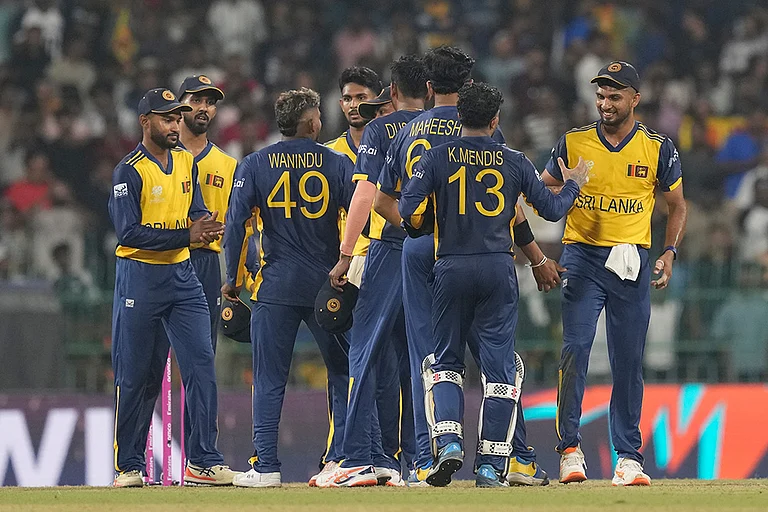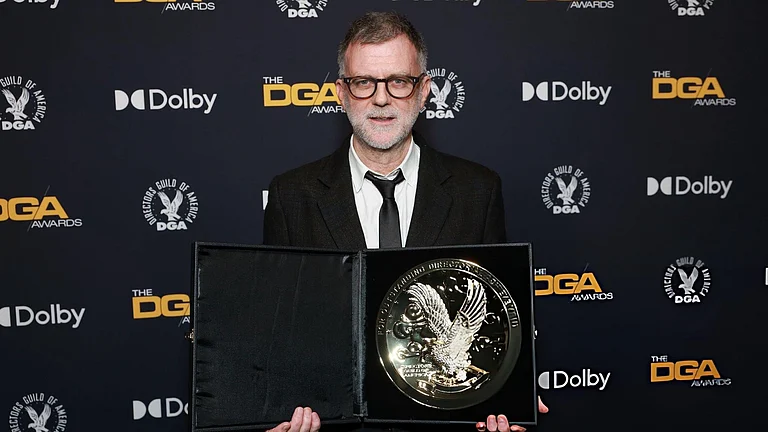WHILE New Delhi debates the implications of the Tata tapes, Bombay's corporate world is buzzing with rumours that the sensational leak is only the latest manifestation of the old rivalry between the Ambanis and Nusli Wadia.
The Ambanis deny the charge. "It's not our company's policy to comment on gossip or speculative theories. Such speculation is beneath contempt. The company respects the right to privacy of every citizen," says a Reliance spokesman.
The other player in the controversy, Ajit Kerkar, ousted chairman of the Tatas' hotel group, won't even react to the charge that he had a hand in the tapping, with a view to get Krishna Kumar, MD of Tata Tea, arrested before Indian Hotels' AGM on October 10. "How can I do that when I was the person who recommended Krishna Kumar as MD of Indian Hotels?" he told Outlook. He insists he could never imagine phone-tapping at this level. "I thought this sort of thing was done only by our defence forces to listen to enemy conversations."
Kerkar also denies that he used his proximity to the Ambanis and they together bugged Wadia's phone: "This is ridiculous. I know many industrialists as my business was with them. I have tremendous respect for Dhirubhai, his vision. But they don't even stay at the Taj. Why are people saying all this?"
But Bombay rumour-mongers are busy putting one and one together. They are surprised that although Nusli Wadia's meetings with Ratan Tata were known in limited circles, the tapes of his conversations become public knowledge.
"Ratan Tata has met Nusli Wadia in the latter's office several times. Everybody knows this. Why then should Wadia's telephone conversations come out at this juncture of the Tata Tea controversy and in this fashion?" asks a captain of industry.
"The Tata tapes were just the case of a tapper striking lucky. Whoever was tapping Wadia's phone was doing it out of a force of habit. When he found the Tatas were in the picture, it was like striking a goldmine. A lot of birds came down in one shot," says a corporate observer.
But Wadia told Outlook: "It is not the issue of my phone. As far as I am concerned, the transcripts contain innocuous conversation—certainly nothing in the public interest. My point is, what if the phone of a person in a sensitive position were to be tapped."
"Highly far-fetched," says a London-based corporate observer of the theory that sees an Ambani hand. "What will they gain? They are on to far greater things than a fight with Wadia. They are smart enough to know that the moment this sort of thing happens to Wadia, their name will be dragged in. Ambani, Kerkar—these are the usual suspects."
Wadia, he says, had been having enough trouble of his own. He's got union problems. He got rid of his chief executive two months ago, and it was a bitter parting. So he has enough enemies inside his organisation who are in a position to bug his phone and give out the transcripts to harm him. Wadia's office as the source of the Tata tapes was articulated by cartoonist Rajinder Puri in The Indian Express on October 11.
Regardless of who tapped the phones and released the excerpts to The Express, the issue exposes Indian corporate skul-duggery at its very worst.
It was Manu Chhabria who showed four years ago that information was the most potent weapon in corporate warfare. As his troubles with the enforcement agencies and brother Kishore mounted, the Dubai-based chairman of Shaw Wallace launched a front company called Multi Dimensional Management Consultancy Pvt Ltd. The name was suitably misleading. But when Chhabria recruited 16 top-ranking retired RAW, CBI and IB officials, and appointed former RAW chief A.K. Verma as advisor and former CBI superintendent V.M. Pandit as director, his motive became clear: corporate espionage and surveillance.
In Delhi, Chhabria hired seven former intelligence officers. In Bombay, he hired a vigilance company called Keev, owned by former RAW joint director V.K. Saraf. In Bangalore, he sought the services of a company called HACS, run by another retired RAW chief N. Narasimhan. The staffing was similar in Madras and Calcutta.
Multi-Dimensional didn't put an end to his problems. In fact, the company had to be disbanded following a public interest litigation filed by A.K. Verma's adversaries. But in his own way, Chhabria had shown that with the collapse of the licence-permit-quota raj, the rules of corporate skulduggery had changed.
Of course, Chhabria isn't alone. The Ambanis have had former CBI director Mohan Katre as advisor. Says a Bombay police officer: "With the competition getting fierce, corporate espionage is rampant. But the corporates do not approach the police and lodge a formal complaint because each of them has something to hide." But where the Tata tapes differ from Chhabria or Ambani having intelligence officers on their payrolls or the above-mentioned tactics is that corporate cloak-and-daggerism may have climbed a notch or two. From serving a purely defensive purpose, it may have graduated to becoming a more potent offence weapon. From getting a rival raided for income-tax, sales tax, excise or FERA violations, Indian industry may have graduated to using industrial espionage to hurt rivals.
Spreading rumours, infiltrating competing business organisations, tailing rival figures when they go abroad or keeping detailed dossiers on their private lives have all been a part of Indian corporate life for as long as anybody would care to remember. The motive, as old as the hills: to scupper deals, up the stakes, settle scores, even plain blackmail.


























